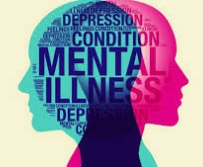Business News of Wednesday, 16 April 2025
Source: www.ghanawebbers.com
Understanding mental health and stress management

Insights on Mental Health from Dr. Jonathan Akuaku
Dr. Jonathan Akuaku, a psychiatric doctor, shared key insights on mental health. He spoke during the Emerging Young Corporate Leaders Fellowship session on February 23, 2025. His expertise helped young leaders understand stress and mental well-being.
Understanding Mental Health
Mental health is more than just the absence of illness. It involves realizing potential and coping with life’s stresses. Good mental health allows individuals to work productively and contribute to their communities.
When mental health suffers, it impacts relationships, work, and physical health. It can even affect one’s sense of identity. Stigma surrounding mental health makes these struggles harder to discuss.
The Challenge of Stigma
Society often views mental disorders as “wrong” or “broken.” This stigma can prevent people from seeking help. As a result, many experience isolation and prolonged suffering. We need to shift the conversation toward understanding mental health's importance.
Stress: A Double-Edged Sword
Stress is a natural part of life but can become overwhelming. Our bodies respond to stress as a survival mechanism through the "fight or flight" response. This reaction releases adrenaline and cortisol, preparing us for action.
However, chronic stress can harm both mental and physical health. It is linked to anxiety, depression, heart disease, and more. Constant pressures from work and life can lead to burnout.
The Stress-Mental Health Cycle
Stress often creates a cycle with mental health issues. Stress leads to anxiety or fatigue, making it harder to cope with stressors. This vicious loop worsens both conditions over time.
Breaking this cycle requires awareness and healthy coping strategies.
Effective Stress Management Techniques
Fortunately, stress management skills can be learned and improved upon:
1. Mindfulness and Meditation: Focus on the present moment without judgment.
2. Physical Activity: Exercise releases endorphins that improve mood.
3. Building Emotional Resilience: Develop self-awareness and emotional regulation.
4. Social Connections: Strong relationships provide support during stressful times.
5. Time Management: Learn to say "no" and set realistic expectations.
6. Sleep Hygiene: Establish good sleep habits for better overall well-being.
7. Seeking Professional Help: Therapy or medication may be necessary for some individuals.
A Holistic Approach
Managing stress effectively requires nurturing mind, body, and spirit together. A healthy lifestyle supports emotional well-being and resilience against stressors.
It’s important to remember that we cannot eliminate stress entirely; instead, we must learn how to cope with it in healthy ways.
Conclusion: Cultivating Care Culture
As awareness of mental health grows, so does the need for self-care and empathy. Mental health should not be a hidden struggle anymore.
By fostering open conversations about these issues, we can reduce stigma around them. Creating supportive environments helps individuals manage their mental health better.
We should view stress not as an enemy but as part of life that fosters growth when managed well.
In our stressful world, finding effective tools will help us thrive rather than just survive.
---
*Contributing Authors: Comfort Atuahene (Executive) & Cindy Odame (President)*
*Disclaimer: This article offers general information on mental health management based on expert insights but is not medical advice.*










